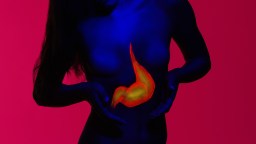autism
“Such studies will lead to a better understanding of brain development in both autistic and typical individuals.”
In “Douglas,” the Australian comedian opens up about her autism diagnosis.
More vaccine-autism facts for the fact-averse.
Musical savants have “enhanced pitch discrimination” and “increased auditory perceptual capacity.” But why?
The study might also help us to identify the prodigy gene, should it exist.
Anti-vaxxers may have a friend coming into the White House, and medical experts are worried.
Hilarious examples that prove how correlation does not equal causality.
Part of the rise in autism is due to better diagnosis, but Dr. Emeran Mayer thinks it’s something in our environment, and within us, that has played a role in causing this increase.
▸
8 min
—
with
MRI study finds brains of ASD subjects are more symmetrical than typical brains, which makes sense.
When you see a stranger in some kind of hardship, how do you react? Researchers carried out a rare study in a real-life setting to assess the relationship between empathy and altruism.
Some within the autism community take issue with seeing autistic people as having a disorder, decrying the “cure culture”.










